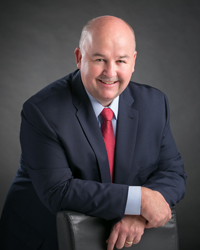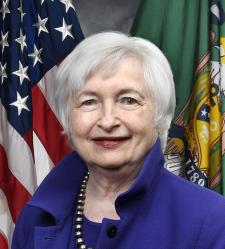

6:00 pm EST - 7:30 pm EST
Past Event
6:00 pm - 7:30 pm EST
44575 Garfield Road
Clinton Township, Michigan
48038

On Wednesday, February 26, Brookings launched the Ezra Zilkha Policy 2020 Event Series at Macomb Community College in Michigan with its first event, “The economy and the 2020 election: If the economy is doing so well, why are so many struggling?”
According to recent polling, the economy is the top issue for Michigan voters in the upcoming presidential election. The event examined the dichotomy between America’s improving economy on paper—demonstrated by low unemployment rates and rising wages—and the financial distress felt by working- and middle-class people across the country as well as in Macomb County.
Jim Sawyer, president of Macomb Community College, opened the event by highlighting the importance of the opportunity to learn more about these economic trends from experts in the field, noting that the Macomb community “recognizes the attention paid to our county” as a bellwether for national politics.
Brookings Senior Fellow David Wessel, who directs the Hutchins Center on Fiscal and Monetary Policy at Brookings, began the discussion by leading a fireside chat with Janet Yellen, former Federal Reserve chair and now Brookings distinguished fellow in residence.

Yellen first addressed the impact of COVID-19, the novel coronavirus, on the economy, noting that that the Treasury yield had fallen to 135, the lowest in history. She proposed that fiscal policy and the Federal Reserve could “play an active role” in supporting the market if the virus spreads significantly in the U.S. and global supply and demand continue to be affected.
Moving to the title question of the event, Yellen agreed with Wessel’s observation that while the basic vital signs of the U.S. economy look good, there are still many who are unhappy and struggling. She cited two striking statistics to the audience: first, the median American male has seen no increase in wages over the last fifty years, and second, the median American male without a college education has seen wages decline by 13% over the same period. Past generations of Americans were progressing financially over time, but not anymore.
Yellen explained that the economy has created 16 million jobs, but only 3 million for workers who don’t have a college education, and those 3 million jobs are likely low-wage, unstable positions. Additionally, advancing technology is driving companies to replace workers with fewer skills, eliminating 180,000 jobs a month and contributing to the discontent felt by middle-income workers in America. For Yellen, education and training are part of the solution. Even though wages are rising for more educated workers, “we need to do a better job of equipping young people with the skills needed to succeed in the labor market,” she said.
Following Wessel and Yellen’s fireside chat, they were joined by Brookings Rubenstein Fellow Molly Kinder, the Detroit Regional Chamber’s Sandy Baruah, and Macomb County Deputy Executive John Paul Rea for a panel discussion.
The panel focused heavily on the issues affecting workers in Macomb and the greater Detroit area as well as the national discontent that has resulted in a polarized electorate, evidenced by the appeal of Senator Bernie Sanders’ campaign during the Trump administration. Baruah attributed this to the fact that 40% of households cannot afford the basic requirements and communities have lost trust in their government and other traditional institutions. Both he and Rea added to Yellen’s observation about arming workers with the technical skills necessary for the jobs that the economy has created, while Rea included the importance of partnerships with community colleges and “micro-credentialing” to fill the jobs being created in the district. Baruah agreed that with more positions requiring four-year degrees, the skills gap is a major obstacle for workers in the area. “We have the people, just not with the right skills.”

Providing a different perspective, Kinder drew from her experience interviewing workers in Michigan for a project with New America. She emphasized that people in the lower half of the wage distribution don’t feel valued by their workplaces as they watch their jobs be replaced by technology like self-checkout. Additionally, low- and middle-income wages just don’t stretch far enough, and many workers live with the anxiety that they’re just “one unexpected expense away from tipping over the edge.”

In closing, Wessel asked the panelists what the federal government could do to alleviate the tensions they were seeing in Michigan and throughout the country. Rea called out the need for reliable infrastructure to support economic growth and addressed both the economic and social benefits of supporting immigration and resettlement in areas like Macomb County. Kinder emphasized a minimum wage increase and bipartisan efforts to better fund training programs and meet the needs of workers who face barriers to returning to school or changing jobs.
The event concluded with questions from the audience.
Policy 2020 aims to empower voters with fact-based, data-driven, nonpartisan information to better understand the policy matters discussed by candidates running for office in 2020. With resources available in English and Spanish, and in a variety of formats, Policy 2020 seeks to reach all Americans aspiring to be well informed on the issues shaping the 2020 election.
5:00 pm
6:00 am

6:05 pm
Moderator

Panelist

6:30 pm
Moderator

Panelist

7:10 pm

Nicol Turner Lee, Tonantzin Carmona
July 1, 2025

Tania Babina, Anastassia Fedyk
July 1, 2025

Aviva Aron-Dine, Lauren Bauer, Eileen Powell
July 1, 2025